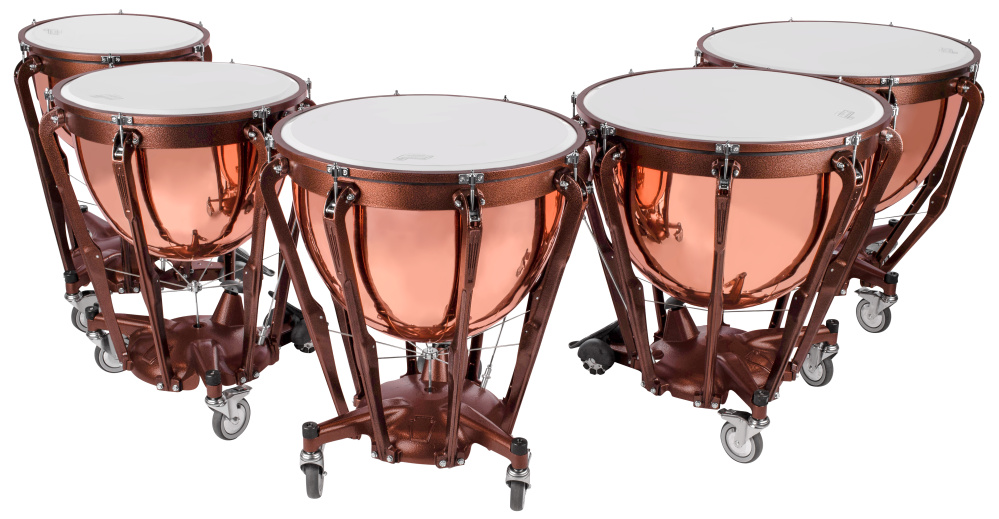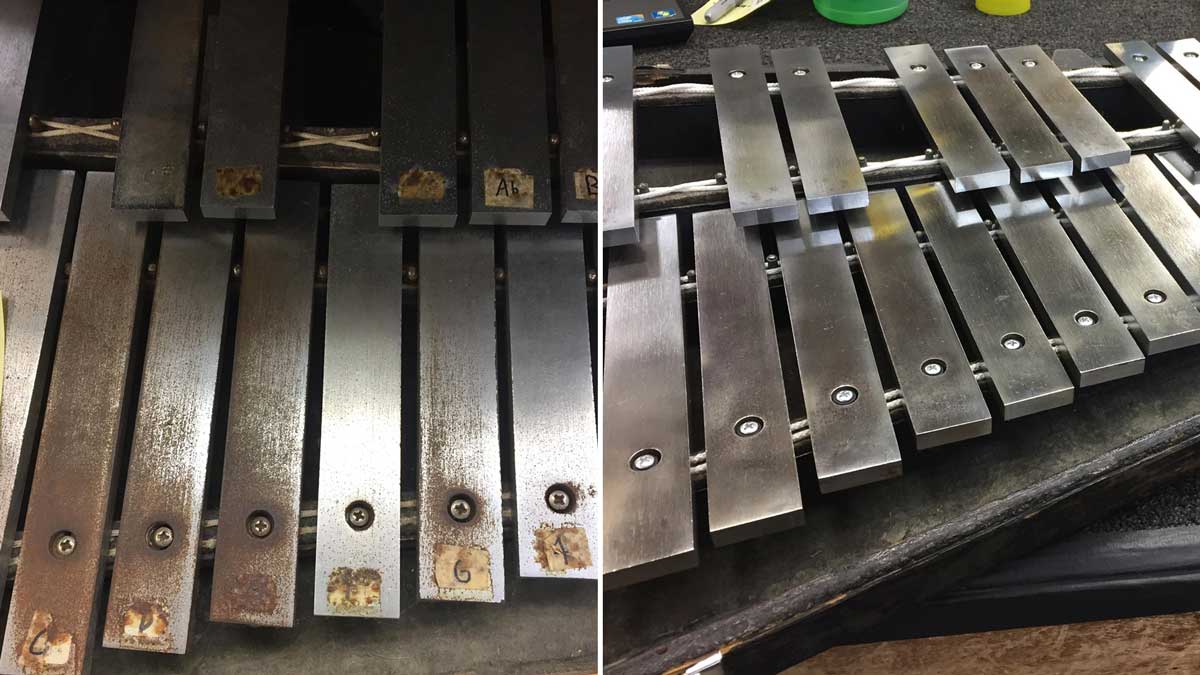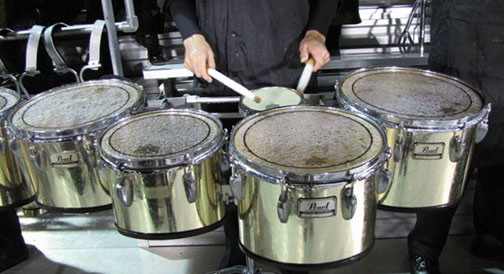
Common Timpani Issues
With the school year well underway, you may start to notice some issues with your timpani after they sat around all summer not being used. Timpani are one of the more misunderstood percussion instruments with regards to function and reparability, but knowing some common issues that occur can give you a better understanding of what to check.
Issue #1 – The Pedals Slip (Won’t stay in position)
When the pedal on timpani is not holding either in the high or low position it is more often than not related to the range of the drums. Over time, the heads continue to stretch and can cause the drums to become out of range and thus not allowing spring and head to be balanced with tension. This is the first thing to check if you have pedal issues. You should check that the lowest note on each drum is correct as seen below:

If the pedal slips forward from the lowest position, it likely means that the drum is too low and needs to be brought up to the correct low note. Holding the pedal in the heel down (low position) make small adjustments to each tension rod until you have the lowest note.
If the pedal is moving back from the upper position, it likely means you need to add a little bit of tension to the spring. However, it is important to check the low note and make sure you have this first. If the low note is correct, adjust the spring.
Issue #2 – The Pedal is Hard to Move or is Stuck
This can be caused by many things, but the first thing to check is that nothing appears to be broken or snapped as this can cause things to stop working completely. More than likely, the balance between the head and spring are not correct so checking these first is a good idea. Other things to check would be the braking systems being to tight and thus not allowing the pedals to move freely. On Ludwig drums this can be found under the pedal while on Yamaha drums this is often found near the center under the bowl.
Issue #3 – The Drums Won’t Stay in Tune
If you are having issues with the drums constantly going low after tuning them up it likely means you are in need of a head change. Timpani heads should be changed every one to two years depending on your daily usage.
If you just changed the heads recently and they just don’t sound great or don’t seem to hold a pitch well they likely need to be cleared and tuned up by a professional. Since the process of clearing and getting timpani in tune with themselves can be tricky it is best to have someone familiar with the process check out the drums.
If you notice something that is not listed here, it is likely something that will need to be inspected and serviced by a professional repair technician. You may find yourself understanding what the cause of the issue may be but not confident in fixing the issue. Give us a call at 317-813-2070 and we can make a visit to your school to ensure your timpani are in top working condition.
Brian Travelsted
Percussion Repair Technician
brian@chopspercussion.com





